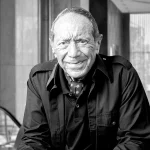The Business of Judging: What DWTS Judges Reveal About Career Strategy and Brand Equity
In the world of Dancing With the Stars, the celebrity contestants often capture the spotlight. Yet the judges — Carrie Ann Inaba, Bruno Tonioli, and Derek Hough — operate on a different plane of influence. Their expertise, personal branding, and strategic positioning not only shape the show’s success but offer instructive lessons in leadership, negotiation, and career longevity. For business leaders and informed consumers alike, examining how these judges manage their visibility, leverage skills, and diversify revenue streams provides a window into high-level career strategy.
Longevity as Leverage: Carrie Ann Inaba and Bruno Tonioli
Carrie Ann Inaba and Bruno Tonioli have been associated with DWTS since its American debut in 2005. Their tenure demonstrates the power of consistent presence and credibility. Inaba, whose net worth is estimated around $9 million, has built a multifaceted career encompassing choreography, television hosting, and branded partnerships. Tonioli, also valued at approximately $9 million, blends choreography for global pop stars with television commentary, using his platform to enhance both personal and show-level brand equity.
For executives, this illustrates the principle of long-term alignment: staying in a trusted, high-visibility position can amplify both influence and financial leverage over time. Their careers show that authority and reliability are assets in negotiation, whether for salary, partnership opportunities, or brand collaborations.
Derek Hough: Performance Meets Leadership
Derek Hough exemplifies strategic reinvention. Transitioning from six-time Mirrorball Trophy winner to permanent judge, Hough leveraged his performance credibility into a leadership role. Reports suggest his judging salary may reach up to $1.2 million per season, reflecting both his individual expertise and his value in maintaining the show’s credibility.
Hough’s trajectory offers lessons in career pivoting. Leaders in any industry can take note: recognizing when to shift from hands-on execution to evaluative or advisory roles can extend influence and open new income streams. Moreover, Hough’s personal brand demonstrates how to monetize expertise—turning skill and reputation into a platform for both visibility and revenue.

Derek Hough
Carrie Ann Inaba: The Strategist Behind the Critique
Carrie Ann Inaba has been a cornerstone of Dancing With the Stars since its 2005 debut. Beyond her role as a judge, she is a choreographer, television host, and media personality. Her estimated net worth of $9 million reflects decades of carefully cultivated expertise, public visibility, and strategic career choices.
Inaba’s longevity offers lessons in brand consistency and credibility. She has successfully leveraged her dance expertise into multiple revenue streams — from choreography contracts to speaking engagements — while maintaining a trusted presence on a widely viewed platform. For business leaders, Inaba exemplifies how aligning core skills with a high-impact platform can generate long-term influence and financial stability. Her career also highlights the importance of reputation management: every public comment, performance critique, and media appearance reinforces her authority in the dance and entertainment sectors.

Carrie Ann Inaba
Bruno Tonioli: The Global Choreographer and Brand Builder
Bruno Tonioli brings an international perspective to the DWTS judges’ panel. With a net worth also estimated at $9 million, he has built a career spanning choreography for global pop icons such as Michael Jackson, Elton John, and Tina Turner, as well as television commentary roles on multiple franchises, including Strictly Come Dancing.
Tonioli’s career demonstrates the value of diversifying expertise across markets. His choreography work showcases creative leadership, while his judging role adds a layer of brand authority and media influence. For business professionals, Tonioli exemplifies the power of monetizing expertise through multiple channels, balancing specialized skill with a visible platform. He also demonstrates how creative credibility can enhance negotiation leverage, securing high-value contracts and opportunities beyond the show itself.

Bruno Tonioli
Strategic Lessons from DWTS Compensation and Influence
The reported earnings of these judges illustrate broader principles of leadership and corporate strategy:
-
Negotiating Value Based on Contribution
Inaba, Tonioli, and Hough command high compensation because their knowledge, experience, and personal brand directly enhance DWTS’s market performance. Leaders can liken this to board-level or advisory roles: reputation and expertise create tangible financial and strategic value. -
Diversification Across Revenue Streams
Beyond judging fees, the judges supplement income through choreography contracts, media appearances, speaking engagements, and branded collaborations. This mirrors business strategy: balancing core roles with ancillary ventures provides financial resilience and broadens influence. -
Managing Public Presence and Authority
Each judge blends authority with relatability, demonstrating how influence depends on strategic communication. For CEOs and executives, this highlights the importance of thought leadership and public positioning in building trust and maintaining credibility. -
Career Longevity Through Adaptation
Inaba and Tonioli’s decades-long involvement underscores the value of sustained engagement with a high-impact platform. Hough’s shift from performer to judge illustrates adaptability: staying relevant often requires evolving the role rather than abandoning the field entirely.
Takeaways for Business Leaders and Consumers
The careers of DWTS judges provide a blueprint for combining expertise, personal brand, and strategic positioning. Their wealth, influence, and longevity are the products of deliberate career choices: aligning skill with opportunity, diversifying income, and negotiating value based on contribution.
For business leaders, this reinforces principles of brand stewardship, career reinvention, and strategic negotiation. For consumers curious about corporate behavior, it demonstrates how value is created, maintained, and monetized in a high-profile, performance-driven environment.
Ultimately, the judges’ paths remind us that influence is not only about visibility—it is about credibility, adaptability, and the strategic deployment of expertise.
Optional FAQ (Evergreen and SEO-Friendly)
Q1: How do DWTS judges make money beyond the show?
A: Judges supplement salaries through choreography, media appearances, speaking engagements, and brand partnerships. Diversifying income helps maintain long-term financial stability.
Q2: Why are DWTS judges so highly paid?
A: Their compensation reflects expertise, brand value, and influence over the show’s credibility and audience engagement—similar to executive or board-level roles in business.













